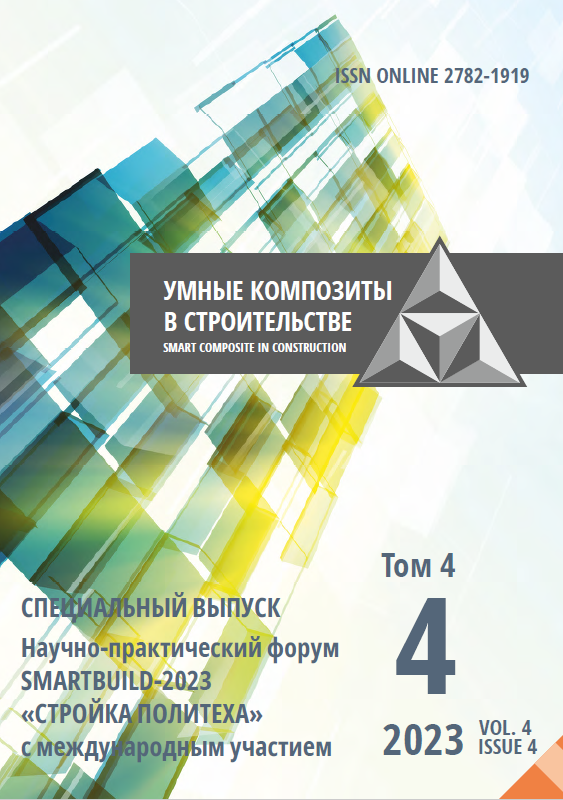Moscow, Moscow, Russian Federation
Ivanovo, Ivanovo, Russian Federation
Ivanovo, Ivanovo, Russian Federation
Yaroslavl State Technical University (Kafedra «Tehnologiya stroitel'nogo proizvodstva»., Professor)
Yaroslavl, Yaroslavl, Russian Federation
Ivanovo, Ivanovo, Russian Federation
UDC 621.577
The design of buildings, especially during the layout and development phase of low heat and energy structures, requires a distinct identification of energy efficiency and performance objectives. Also it should consider the flow and inflow of energy and thermal systems. It allows the project to comply with the client's and designer's requirements regarding the energy efficiency class. The required energy base for the development of construction objects is established by observing a number of approaches. These include the following ones: functional - facilities are convenient for the process; technical - facilities protect people from harmful effects; architectural and artistic expressiveness - facilities have a favourable effect on the persons’ psychological condition; economic - the building uses maximum useful area with minimum labour, financial and time costs on its construction. In terms of cost-effectiveness, the requirements apply to costs over the facilities life cycle.
construction project, facilities, energy-saving structures, life cycle, energy efficiency class, air exchange, buffer capacity, humidifier
1. On the concept of implementing a life cycle management system for capital construction projects using BIM technologies [online]. Available at: https://gge.ru "upload" iblock (assessed 01.08.2023) (in Russian).
2. Malakhov, V. (2021) Life cycle engineering: shish kebab or churchkhela! Stroitelniy ekspert [online]. Available at: https://ardexpert.ru/article/20733. (assessed 01.08.2023) (in Russian).
3. Talapov, V. (2017) The life cycle of a building and its connection with the introduction of BIM technology, Otechestvennye razrabotki, (2), pp. 8-11 [online]. Available at: https://sapr.ru/article/25376 (assessed 01.08.2023). (in Russian).
4. Decree of the Government of the Russian Federation No. 1628 on 27.09.2021 «On Approval of the Rules for Establishing Energy Efficiency Requirements for Buildings, Structures, Structures and Requirements for the Rules for Determining the energy Efficiency Class of Apartment Buildings» (in Russian).
5. Aloyan, R.M., Fedoseev, V.N. & Vinogradova, N.V. (2018) Energy-saving heating with the function of an air heat pump and microclimate. Fundamental. Exploratory research of the RAASN on scientific support for the development of architecture, urban planning and the construction industry of the Russian Federation in 2017, Sb. nauch. tr. Ross. akad. arkhitektury i stroit. nauk. Moscow, pp. 50-53. DOI: https://doi.org/10.22337/9785432302663-50-53 (in Russian).
6. Fedosov, S.V., Fedoseev, V.N. & Emelin, V.A. (2021) Efficiency of the mixing chamber design when working together with an air heat pump system for heating premises, Sovremennye naukoemkie tekhnologii. Region. prilozhenie, 1(65), pp. 94-100. DOI:https://doi.org/10.6060/snt.20216501.0012 (in Russian).
7. Fedosov, S.V., Fedoseev, V.N. & Zaitseva, I.A. (2020) Recirculating air heat pump with recuperation: experience of application, Ventilyatsiya, otoplenie, konditsionirovanie vozdukha, teplosnabzhenie i stroitelnaya teplofizika: AVOK, (8), pp. 54-57 (in Russian).
8. Lebedeva, N.A. (2012) Ventilation and internal microclimate, Ventilyatsiya, otoplenie, konditsionirovanie vozdukha, teplosnabzhenie i stroitelnaya teplofizika: AVOK, (3), pp. 42-51 (in Russian).
9. Fanger, P. (2003) The quality of indoor air in the XXI century: the impact on comfort, productivity and human health, Ventilyatsiya, otoplenie, konditsionirovanie vozdukha, teplosnabzhenie i stroitelnaya teplofizika: AVOK, (4) (in Russian).
10. Tabunshchikov, Yu.A. & Brodach, M.M. (2018) Artificial intelligence in the management of heat and energy consumption of a building, Ventilyatsiya, otoplenie, konditsionirovanie vozdukha, teplosnabzhenie i stroitelnaya teplofizika: AVOK, (8), pp. 14-21 (in Russian).
11. Fanger, P. (2006) Indoor air quality in buildings built in cold climates, Ventilyatsiya, otoplenie, konditsionirovanie vozdukha, teplosnabzhenie i stroitelnaya teplofizika: AVOK, (2) (in Russian).
12. Seppanen, O. (2000) Energy-efficient ventilation systems to ensure a high-quality indoor climate, Ventilyatsiya, otoplenie, konditsionirovanie vozdukha, teplosnabzhenie i stroitelnaya teplofizika: AVOK, (5) (in Russian).
13. Patent No. 208767 RU. Air humidifier / Fedosov S.V., Fedoseev V.N., Emelin V.A., Voronov V.A., Loginova S.A. Publ. 2022 (in Russian).
14. Koryagin, M.V. (2015) The need for an engineering approach to energy saving on real estate objects, 16-y Mezhd. nauch.-promyshl. forum «Velikiye reki-2014»: Tr. kongressa, (3). N. Novgorod: NNGASU, pp. 88-91 (in Russian).
15. Abramyan, S.G., Oganesyan, O.V. & Sibirskiy, E.V. (2022) Energy-efficient reconstruction at various stages of the construction system life cycle, Inzhenernyy vestnik Dona, 1(85), pp. 459-469 (in Russian).
16. Lebedeva, N.A. (2012) Ventilation and internal microclimate, Ventilyatsiya, otopleniye, konditsionirovaniye vozdukha, teplosnabzhenie i stroitelnaya teplofizika: AVOK, (3) (in Russian).
17. SanPiN 2.2.4.548-96. Physical factors of the production environment. Hygienic requirements for the microclimate of industrial premises. Sanitary rules and regulations (approved Resolution of the State Sanitary and Epidemiological Supervision of the Russian Federation dated 01.10.1996 N 21) (in Russian).
18. Adaptive ventilation systems: promising directions of development. (2011) Ventilyatsiya. Otoplenie. Konditsionirovanie: AVOK, (7) (in Russian).
19. Miftakhova, E.D. (2020) Energy-efficient ventilation systems to ensure a high-quality indoor microclimate, Mezhd. nauch. zhurn. «Vestnik nauki, 6(27), pp. 192-195 (in Russian).
20. Olesen, V. (2015) Microclimate parameters in the design of engineering systems and assessment of energy efficiency of the building, Ventilyatsiya. Otoplenie. Konditsionirovanie: AVOK, (3) (in Russian).







